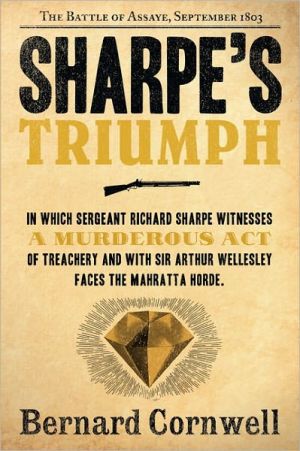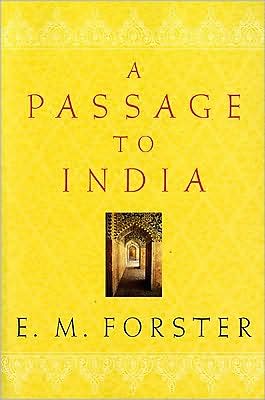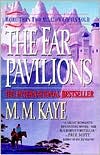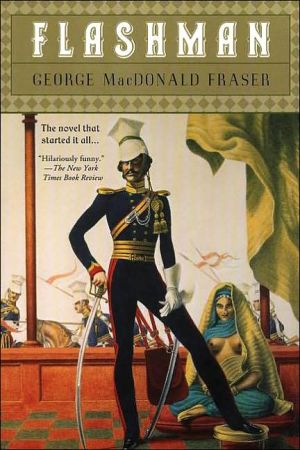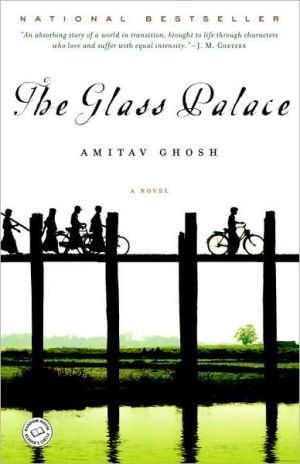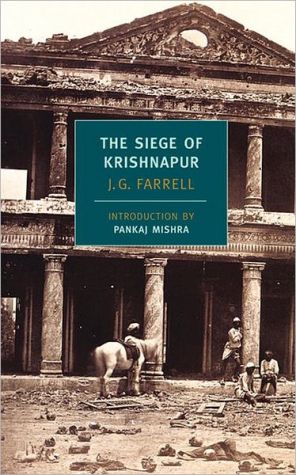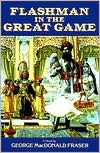Sharpe's Triumph (Sharpe Series #2)
"I saw you fight at Seringapatam and I doubt Dodd can stand up to you."\ "He won't, sir, he won't," Sharpe said grimly. "And I'll keep you alive." "If God wills it." Sharpe smiled. "Don't they say God helps those who help themselves, sir? We'll do the job, sir."\ Richard Sharpe—soldier, hero, rogue—the man you always want on your side. Born in poverty, he joined the army to escape jail and climbed the ranks by sheer brutal courage. He knows no other family than the regiment of the 95th...
Search in google:
The paths of treachery lead Sharpe's company to join the army of Sir Arthur Wellesley, the future Duke of Wellington, to take on the Mahratta horde. Sharpe must survive the carnage and live to tell the tale of what will be remembered as one of the greatest battles of its century.Morning StarA riveting story of betrayal and revenge that showcases a blend of suspenseful military adventures and sweeping historical detail.
Chapter One\ \ \ It was not Sergeant Richard Sharpe's fault. He was not in charge. He was junior to at least a dozen men, including a major, a captain, a subadar and two jemadars, yet he still felt responsible. He felt responsible, angry, hot, bitter and scared. Blood crusted on his face where a thousand flies crawled. There were even flies in his open mouth.\ But he dared not move.\ The humid air stank of blood and of the rotted egg smell made by powder smoke. The very last thing he remembered doing was thrusting his pack, haversack and cartridge box into the glowing ashes of a fire, and now the ammunition from the cartridge box exploded. Each blast of powder fountained sparks and ashes into the hot air. A couple of men laughed at the sight. They stopped to watch it for a few seconds, poked at the nearby bodies with their muskets, then walked on.\ Sharpe lay still. A fly crawled on his eyeball and he forced himself to stay absolutely motionless. There was blood on his face and more blood had puddled in his right ear, though it was drying now. He blinked, fearing that the small motion would attract one of the killers, but no one noticed.\ Chasalgaon. That's where he was. Chasalgaon; a miserable, thorn-walled fort on the frontier of Hyderabad, and because the Rajah of Hyderabad was a British ally the fort had been garrisoned by a hundred sepoys of the East India Company and fifty mercenary horsemen from Mysore, only when Sharpe arrived half the sepoys and all of the horsemen had been out on patrol.\ Sharpe had come from Seringapatam, leading a detail of six privates and carrying a leather bag stuffed with rupees, and he had been greeted byMajor Crosby who commanded at Chasalgaon. The Major proved to be a plump, red-faced, bilious man who disliked the heat and hated Chasalgaon, and he had slumped in his canvas chair as he unfolded Sharpe's orders. He read them, grunted, then read them again. "Why the hell did they send you?" he finally asked.\ "No one else to send, sir."\ Crosby frowned at the order. "Why not an officer?"\ "No officers to spare, sir."\ "Bloody responsible job for a sergeant, wouldn't you say?"\ "Won't let you down, sir," Sharpe said woodenly, staring at the leprous yellow of the tent's canvas a few inches above the Major's head.\ "You'd bloody well better not let me down," Crosby said, pushing the orders into a pile of damp papers on his camp table. "And you look bloody young to be a sergeant."\ "I was born late, sir," Sharpe said. He was twenty-six, or thought he was, and most sergeants were much older.\ Crosby, suspecting he was being mocked, stared up at Sharpe, but there was nothing insolent on the Sergeant's face. A good-looking man, Crosby thought sourly. Probably had the bibbis of Seringapatam falling out of their saris, and Crosby, whose wife had died of the fever ten years before and who consoled himself with a two-rupee village whore every Thursday night, felt a pang of jealousy. "And how the devil do you expect to get the ammunition back to Seringapatam?" he demanded.\ "Hire ox carts, sir." Sharpe had long perfected the way to address unhelpful officers. He gave them precise answers, added nothing unnecessary and always sounded confident.\ "With what? Promises?"\ "Money, sir." Sharpe tapped his haversack where he had the bag of rupees.\ "Christ, they trust you with money?"\ Sharpe decided not to respond to that question, but just stared impassively at the canvas. Chasalgaon, he decided, was not a happy place. It was a small fort built on a bluff above a river that should have been overflowing its banks, but the monsoon had failed and the land was cruelly dry. The fort had no ditch, merely a wall made of cactus thorn with a dozen wooden fighting platforms spaced about its perimeter. Inside the wall was a beaten-earth parade ground where a stripped tree served as a flagpole, and the parade ground was surrounded by three mud-walled barracks thatched with palm, a cookhouse, tents for the officers and a stone-walled magazine to store the garrison's ammunition. The sepoys had their families with them, so the fort was overrun with women and children, but Sharpe had noted how sullen they were. Crosby, he thought, was one of those crabbed officers who were only happy when all about them were miserable.\ "I suppose you expect me to arrange the ox carts?" Crosby said indignantly.\ "I'll do it myself, sir."\ "Speak the language, do you?" Crosby sneered. "A sergeant, banker and interpreter, are you?"\ "Brought an interpreter with me, sir," Sharpe said. Which was overegging the pudding a bit, because Davi Lal was only thirteen, an urchin off the streets of Seringapatam. He was a smart, mischievous child whom Sharpe had found stealing from the armory cookhouse and, after giving the starving boy a clout around both ears to teach him respect for His Britannic Majesty's property, Sharpe had taken him to Lali's house and given him a proper meal, and Lali had talked to the boy and learned that his parents were dead, that he had no relatives he knew of, and that he lived by his wits. He was also covered in lice. "Get rid of him," she had advised Sharpe, but Sharpe had seen something of his own childhood in Davi Lal and so he had dragged him down to the River Cauvery and given him a decent scrubbing. After that Davi Lal had become Sharpe's errand boy. He learned to pipeclay belts, blackball boots and speak his own version of English which, because it came from the lower ranks, was liable to shock the gentler born.
\ Stephen KingConsistently . . . brilliantly realized . . . the Sharpe novels are wonderful.\ \ \ \ \ Morning StarA riveting story of betrayal and revenge that showcases a blend of suspenseful military adventures and sweeping historical detail.\ \ \ Roanoke Times & World NewsReaders throughout the world feel lucky when Bernard Cornwell releases another book in the Richard Sharpe series of wonderful novels that take an everyman's view of military life in the 19th century.... The publication of this novel coincides with the release of new trade paperback versions of some other Sharpe volumes. Please, buy them all. They are that good.\ \ \ \ \ Deseret NewsOne of the finest authors of military historical fiction.\ \ \ \ \ Publishers WeeklyFollowers of Cornwell's series featuring the exploits of British infantry officer Richard Sharpe (Sharpe's Rifles, et al.) in the Napoleonic wars (adapted for Masterpiece Theater) and in his earlier career in colonial India will relish this look at Sergeant Sharpe on the subcontinent in 1803. A fluke makes our hero unofficial aide to General Sir Arthur Wellesley (the future Duke of Wellington, though it's never mentioned in the novel) at the time of the siege of Ahmednuggur and Wellesley's brilliant victory at Assaye against the Indian Mahratta Confederation and the turncoat forces of ex-English officer William Dodd. This was the beginning of the end of the Mahratta rebellion against the British and a turning point in the Raj's growing power. Among the book's rich cast of characters are Hakeswill, a murderous British sergeant determined to kill Sharpe; Simone Joubert, the needy wife of a French officer; and the colorful Hanoverian mercenary, Colonel Pohlmann, who leads the Mahratta forces from atop an elephant. Most roundly dimensional and representing the extremes of British society are Wellesley, the coldly brilliant and fearless son of an earl, and Sharpe himself, the tortured, unlettered bastard from London's slums, who is determined to rise. Cornwell contributes vivid details in descriptions of life in an army camp, the dual military regimes of the East India Company and the regular army, and Indian politics. Best are the battle scenes, laid out clearly--there's a handy map--with all the heat, stink and blood of war and "the joys of slaughter." The reader's pleasure in all this gore may be a guilty one, but Cornwell, a master of battlefield writing, makes it too exhilarating to forgo. 15-city NPR feature; 3-city author tour. (Aug.) Copyright 1999 Cahners Business Information.\ \ \ \ \ Library JournalWilliam Gaminara does an excellent job in his presentation of this 14th volume of Cornwell's Sharpe series. Triumph covers Sergeant Sharpe's service with the British Army in India, before the Peninsular War and Waterloo. The story begins with a treacherous attack by Maj. William Dodd, a British officer who has defected from the East India Company. Surviving the massacre, Sharpe vows to take revenge, a vow that leads him to serve with Gen. Arthur Wellesley and to take the field when Wellesley leads an impossibly small force of 5000 men against the 50,000 of the Maratha Army quartered at Assaye. Cornwell's (The Winter King, Audio Reviews, LJ 8/97) depiction of the events that occurred before and during the 1803 battle at Assaye is vivid and historically accurate. Sure to be popular with Sharpe fans and a good read for people interested in British or military history; highly recommended.--Theresa Connors, Arkansas Tech. Univ., Russellville Copyright 1999 Cahners Business Information.\ \ \ \ \ Kirkus ReviewsThe marvelous Cornwell returns to his greatest character, British Army rifleman Richard Sharpe, after completing his Arthurian Warlord trilogy and the Starbuck Chronicles series, about the US Civil War. In the most recent Sharpe adventure (Sharpe's Battle, 1995), set in May 1811, Captain Sharpe fought in the savage, three-day engagement against Napoleon's troops at the Battle of Fuentes de Oñoro. It's now eight years earlier, and Sharpe is a sergeant in India fighting beside Wellington at the Battle of Assaye, an engagement that Sir Arthur Wellesley, the Duke of Wellington, rated above his triumph over Napoleon at Waterloo. The British Army is preparing to attack India's Mahratta Confederation when the ragingly ambitious Lt. Dodd defects to the Confederation. But is it a real defection? Great banks of gunsmoke rise as the armies battle—until, at a village called Assaye, the enemy baits its trap for Wellington and draws him into the range of an array of infantry and of 80 heavy guns on a high bluff, and besides that into a village crammed with the Rajah of Berar's troops. By story's end, Sharpe is Ensign Sharpe, a commissioned officer. Cornwell's fans will dance with delight as horsemen charge and sabers swing through chaos and terror.\ \
